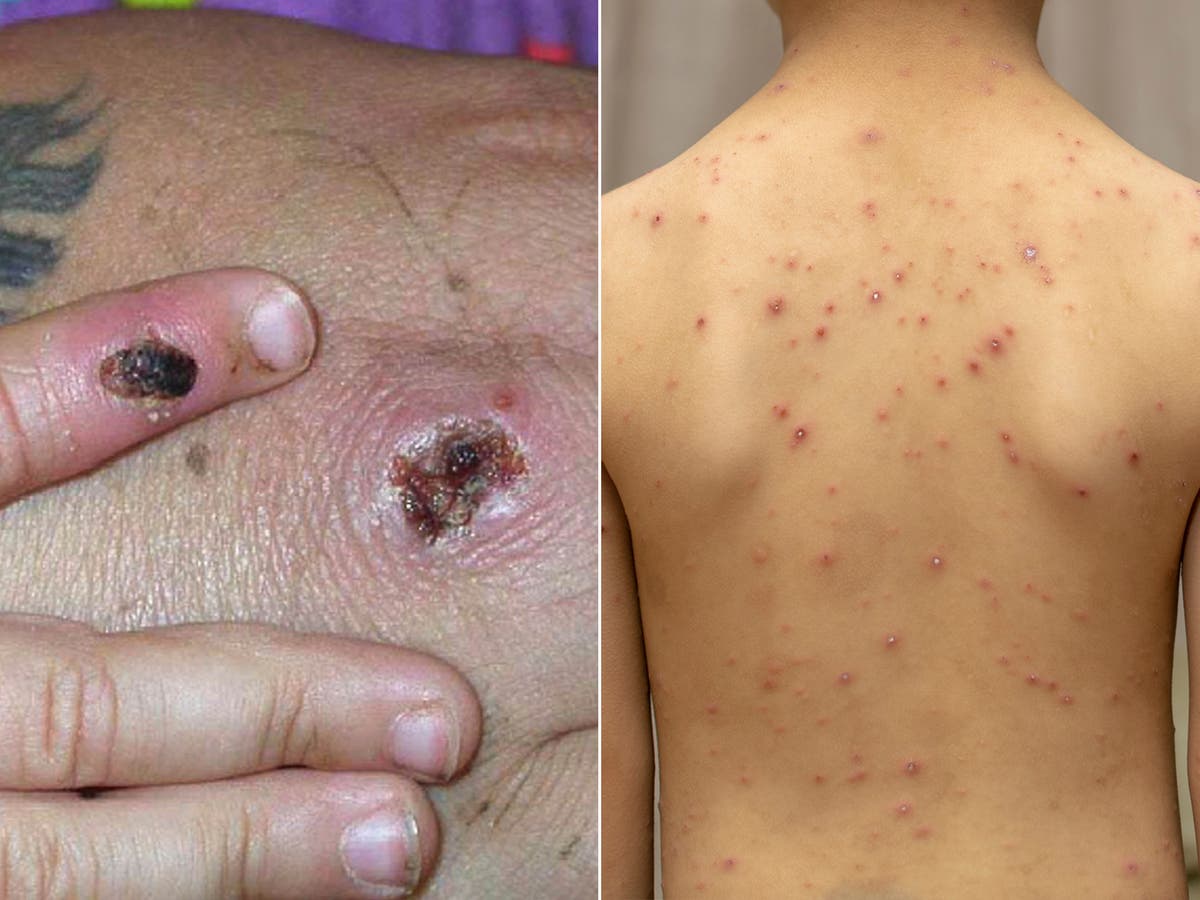As of 22 August, there were 3,207 confirmed and 133 highly probable cases of monkeypox in the UK, or a total of 3,340, according to UKHSA (British Health Safety Agency). Of these, 3,191 are in the UK.
Many of the symptoms of the disease initially seem similar to those of chickenpox, but there are some key differences between the two.
First, the disease is caused by a different virus: monkeypox is an orthopoxvirus, whereas chickenpox is caused by the varicella-zoster virus, which also causes herpes zoster.
Both viruses can be spread by close contact through respiratory droplets and by direct contact with skin lesions and recently contaminated objects.
While chickenpox is a common and highly contagious disease, monkeypox is less common and more easily spread.
Monkeypox is usually a mild disease with early symptoms such as fever, headache, muscle aches, back pain, chills, and fatigue.
Although many of these symptoms also appear in people who are infected with chickenpox, swollen lymph nodes are a hallmark of monkeypox, which is not present in chickenpox.
The incubation period for monkeypox can range from seven to 14 days, while chickenpox symptoms can take up to 16 days to appear, according to the US Centers for Disease Control and Prevention.
After monkeypox infection, a rash, initially similar to chickenpox, usually appears one to three days after the fever.
The rash goes through several different stages, first developing into fluid-filled papules and pustules before hardening and falling off.
However, the form of the chickenpox rash is different.
The spots do not develop uniformly in the chickenpox rash, as they appear at different times. Monkeypox lesions, however, appear and develop at the same time.
Symptoms of monkeypox usually last two to four weeks. Some strains can cause severe illness, with recent mortality rates between 3 and 6 percent, according to WHO (World Health Organization).
Symptoms of chickenpox can last up to two weeks, but usually go away within seven days.
The UK government has published new guidelines advising people who have the virus and those who have been directly exposed to monkeypox-infected people to self-isolate for three weeks.
People in this group were also told not to travel and advised to avoid contact with immunocompromised persons, pregnant women and children under 12 years of age.

“Internet trailblazer. Troublemaker. Passionate alcohol lover. Beer advocate. Zombie ninja.”







